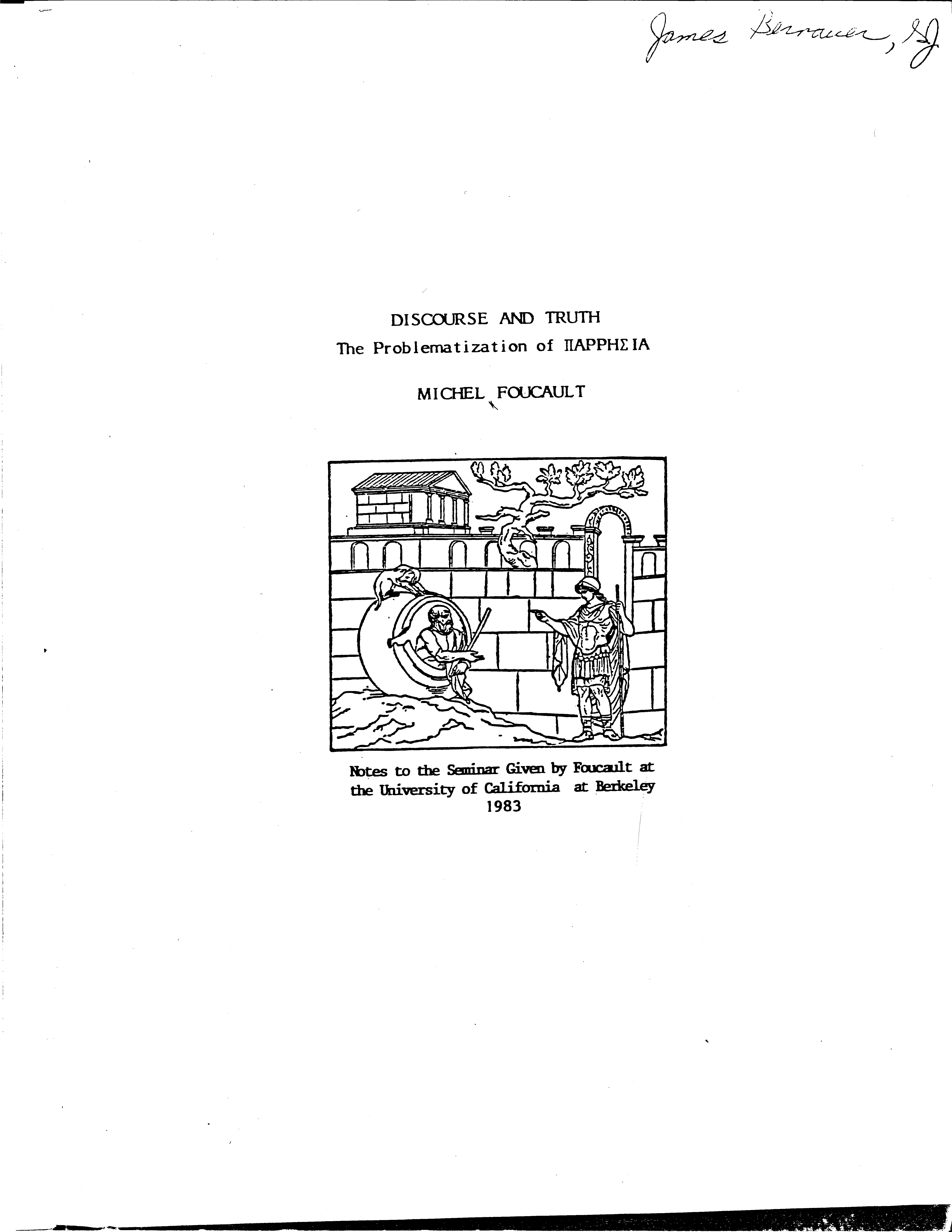What do you think?
Rate this book


67 pages, Unbound
First published November 1, 1983
To criticize a friend or a sovereign is an act of parrhesia insofar as it is a duty to help a friend who does not recognize his wrongdoing, or insofar as it is a duty towards the city to help the king to better himself as a sovereign. Parrhesia is thus related to freedom and to duty.
To summarize the foregoing, parrhesia is a kind of verbal activity where the speaker has a specific relation to truth through frankness, a certain relationship to his own life through danger, a certain type of relation to himself or other people through criticism (self-criticism or criticism of other people), and a specific relation to moral law through freedom and duty. More precisely, parrhesia is a verbal activity in which a speaker expresses his personal relationship to truth, and risks his life because he recognizes truth-telling as a duty to improve or help other people (as well as himself). In parrhesia the speaker uses his freedom and chooses frankness instead of persuasion, truth instead of falsehood or silence, the risk of death instead of life and security, criticism instead of flattery, and moral duty instead of self-interest and moral apathy. That then, quite generally, is the positive meaning of the word parrhesia in most of the Greek texts where it occurs from the Fifth Century B.C. to the Fifth Century A.D. (19-20)